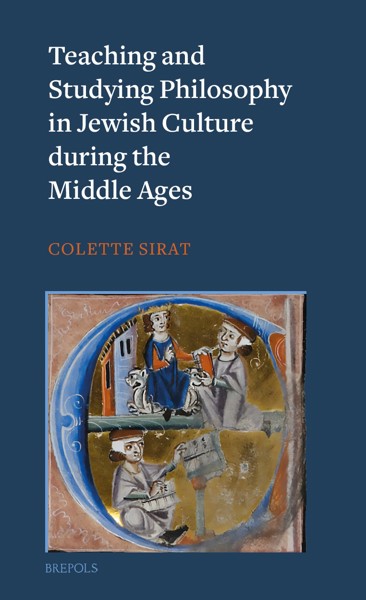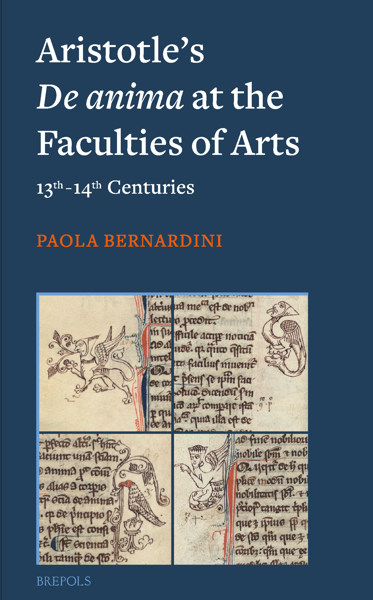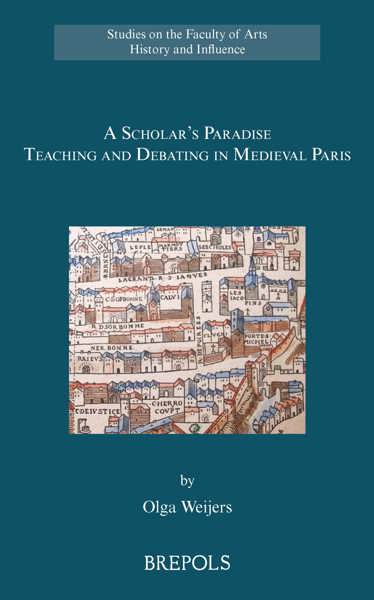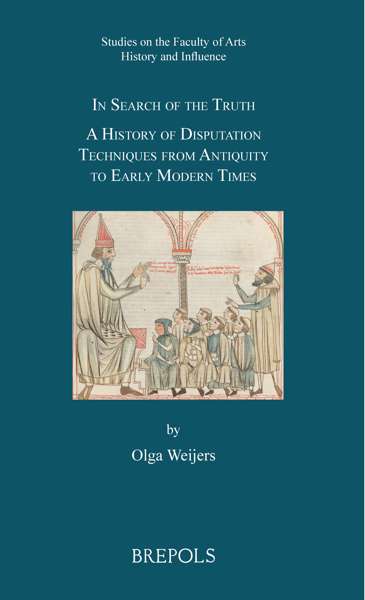
Teaching and Learning the Sciences in Islamicate Societies (800-1700)
Sonja Brentjes
- Pages: 334 p.
- Size:127 x 203 mm
- Illustrations:18 col., 4 tables b/w.
- Language(s):English
- Publication Year:2018
- € 50,00 EXCL. VAT RETAIL PRICE
- ISBN: 978-2-503-57445-5
- Paperback
- Available
- € 50,00 EXCL. VAT RETAIL PRICE
- ISBN: 978-2-503-57446-2
- E-book
- Available
Recipient of the 2022 Annemarie Schimmel Foundation Award for Islamic Studies
This book provides for the first time a survey of the important features of educational activities and structures in various Islamicate societies between 800 and 1700 with regard to the mathematical and occult sciences, medicine, and natural philosophy.
« L’auteure étudie avec précision les activités et théories des savants sur la transmission du savoir qui entretiennent la vivacité de l’activité scientifique. Elle signe en cela un ouvrage nécessaire aux lecteurs qui cherchent à saisir une vue d’ensemble de l’enseignement dans le monde arabomusulman. S. Brentjes rétablit ainsi les correspondances entre la production de savoir et sa transmission, objets de réflexions intimement liées tout au long de l’évolution des sciences chez les savants du monde arabo-musulman. » (Nour Dahmani, dans Revue des mondes musulmans et de la Méditerranée, 147/1, 2020)
“With a pioneering work such as this, one can level any number of criticisms (…) it certainly provides solid information that can be built on by future scholars.” (Sally P. Ragep, in ISIS: A Journal of the History of Science Society, 110/4, 2019, p. 799)
« C’est ainsi toute la vigueur de la transmission durable des sciences en Islam que S. Brentjes met en lumière dans son ouvrage qui fourmille de données passionnantes. » (Pascal Buresi, in Cahiers de civilisation médiévale, 62, 2019, p. 375)
« Pour conclure, on peut louer Sonja Brentjes d’avoir offert aux étudiants en Histoire et en Histoire des sciences au premier chef, et à la communauté scientifique en général, des exemples clairs, concrets sur la typologie des savoirs et son évolution, sur les lieux de savoir et leur fonctionnement, par le biais d’exemples précis, de maîtres, d’élèves et des outils qui étaient élaborés par les uns pour instruire les autres. » (Anna Caiozzo, dans Bulletin Critique des Annales Islamologiques, 34, 2020, p. 43)
“In sum, Brentjes provides a detailed and informative overview of teaching and learning in Islamicate societies and as such makes a valuable contribution. She convincingly demonstrates that scientific texts continued to emerge in Islamicate societies even during the period where previous scholars have argued for decline.” (Eric Chaney, in Centaurus, 1-2, 2020)
“With its clarity and attempt to introduce the reader to a number of scholars, institutions, and texts on well-selected subjects, Sonja Brentjes’s book is to be highly recommended for those interested in learning about the history of science and intellectual history within an Islamic context. I hope this work will attract more attention to the history of science education in Islamic societies.” (Hasan Umut, in Ilahiyat Studies, 11.1, 2020, p. 150)
“Despite the utter clarity of the book’s title, it is worth emphasizing that this work is not a survey of the history of science in the premodern Islamicate world, but of science education. This distinction is precisely what makes it a valuable addition to the history of science and to the history of premodern thought and culture more widely.” (Noah Gardiner, in Renaissance Quarterly, LXXIII/2, 2020, p. 690-91)
“(…) this is overall an important contribution to our knowledge of education and science in the pre-modern Islamic world. The book provides a pioneering and intelligent overview of a broad, important and understudied topic. Brentjes deserves our gratitude for having dared to write it.” (Khaled El-Rouayheb, in History of Education, 2019, p. 729)
“This is a brilliant book, full of unique and essential information. Sonja Brentjes has long been one of the leading authorities in Islamic science, specifically in mathematics and related fields. In this book she exposes in a condensed and thorough way her vast knowledge of these fields.” (Remke Kruk, in Bibliotheca Orientalis, LXXVII N° 3-4, 2020, p. 387)
“(…) Brentjes’s sweeping yet filigree study constitutes the most forceful and persuasive argument to date against the still-endemic colonialist-orientalist decline thesis. It will serve as model and inspiration for Islamicist historians of science and education working well beyond the historical Islamicate heartlands, and as indispensable handbook for teaching and learning the sources of premodern Islamicate science education for the next generation or two at least, to inspire many epitomes and glosses (though perhaps not versifications) of its own.” (Matthew Melvin-Koushki, in Intellectual History of the Islamicate World, 10/3, 2022, p. 380)
Sonja Brentjes is researcher at the Max Planck Institute for the History of Science in Berlin. She has published widely on the history of mathematics, institutions, cartography, and cross-cultural encounters, mainly with regard to Islamicate societies, but also about parts of Christian Europe and South Asia. In 2021 she won the 2021 Kenneth O. May Prize in the History of Mathematics.
This book surveys teaching and learning in the mathematical and occult sciences, medicine and natural philosophy in various Islamicate societies between 800 and 1700. It focuses in particular on Egypt and Syria between 1200 and 1600, but looks also at developments in Iran, India, Anatolia, and Iraq. It discusses institutions of teaching and learning such as house and court teachers, madrasas, hospitals, in-family teaching, and travelling in search of knowledge, as well as the content of the various sciences taught by or at them. Methods of teaching and learning, teaching bestsellers and their geographical and temporal dissemination, as well as encyclopaedias and literature on the classification of the sciences are treated in further chapters.
General Introduction
Chapter 1: Contextualizing Learning and Teaching of the Sciences in Islamicate Societies
Chapter 2: Teachers and Students at Courts and in Private Homes (8th-12th centuries)
Chapter 3: Schools of Advanced Education
Chapter 4: The Sciences at Madrasas
Chapter 5: Other Teaching Institutions
Chapter 6: Teaching and Learning Methods
Chapter 7: Encyclopaedias and Classifications of the Sciences
Chapter 8: Teaching Literature and Its Temporal Geographies
Table 1 Islamicate Dynasties Prominently Mentioned in this Book
Table 2: Ancient Scholars
Table 3: Scholars from Islamicate Societies
Table 4: Muslim Rulers
Bibliography
Index




